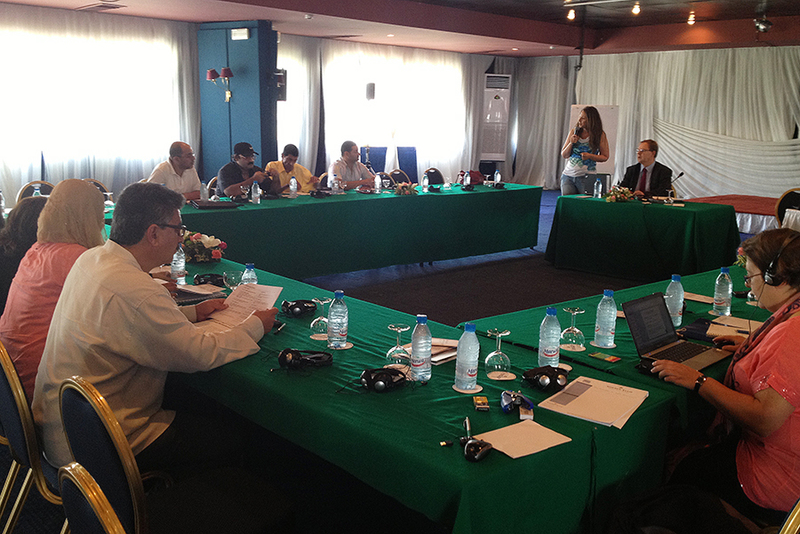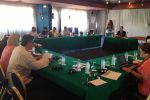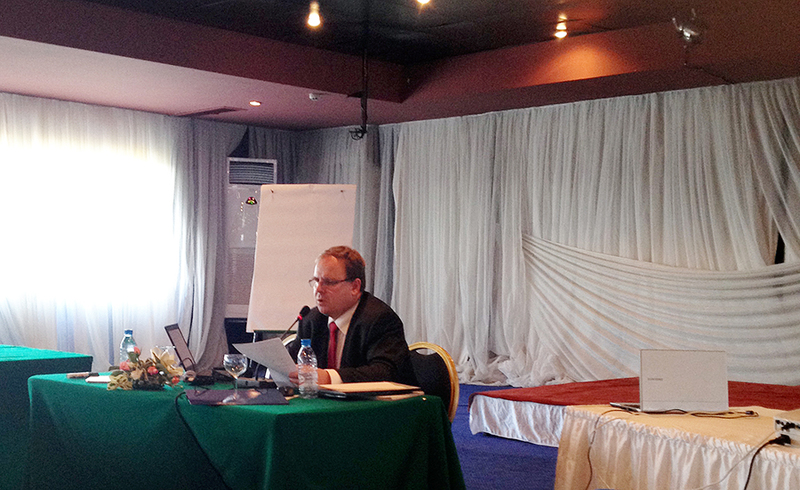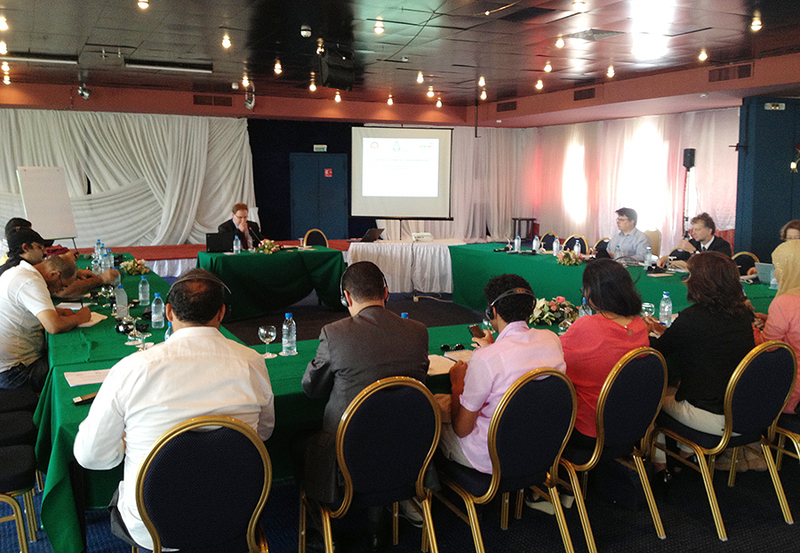The role of the state archives, other public institutions and civil society organizations in establishing facts and ways of dealing with the past, the rehabilitation of the victims and the vetting of the persons holding public offices are the main subjects of two separate workshops in Tunis. Workshop for representatives of non-governmental organizations involved in the construction of civil society and human rights defenders ended on September 29. Currently the workshops for representatives of government, who will be a partner for the NGOs, are being held.
At the request of the Tunisian government IPN, Foundation for International Solidarity and Tunisian organization Labo Démocratique joitly organized both workshops . During the first workshop, the Polish side was represented by Krzysztof Persak , Director of the Office of the President of IPN, Łukasz Michalski, Deputy Director of the IPN's Public Education Office, Prof. Ireneusz C. Kaminski from the Helsinki Foundation for Human Rights, and Adam Leszczynski from Gazeta Wyborcza daily. The second workshop's peakers are: Agnieszka Rudzińska, Vice President of IPN, Rafal Leśkiewicz , Director of the IPN's Office for Dissemination and Preservation of Archival Documents, prosecutor Jacek Wygoda from the IPN's Vetting Office, Bogumil Zygmont from the Helsinki Foundation for Human Rights ,and Paweł Osik from the Supreme Bar Council.
The workshops is another in a series of numerous IPN's activities to support democratic process in Tunisia. Representatives of the Institute visited Tunisia several times, the Tunisians were also hosted in Poland. In early July Łukasz Kamiński , IPN's President, hold talks with the Tunisian Prime Minister's Chancellery.
The self-immolation of unemployed 26 -year-old Mohamed Bouazizi on 17th of December 2010 triggered a wave of protests that swept away the authoritarian regime of President Ben Ali. Democratic change in Tunisia was the beginning of civil risings throughout the Maghreb and Middle East, so-called "Arab Spring".
The new Tunisian government had established Ministry of Human Rights and Transitional Justice. A bill to set up an independent 15 -member Commission of Truth and Dignity is ready. Interestingly, Tunisia being a Muslim country, according to the project at least 1/3 of the Commission shall be women . The Commission and its executive body will act similarly in many aspects to the Polish Institute of National Remembrance . the commission is to collect documents , conduct investigations on the repressions of the regime, create a program to compensate the victims , and finally to take care of "national memory " about the victims of repression.








